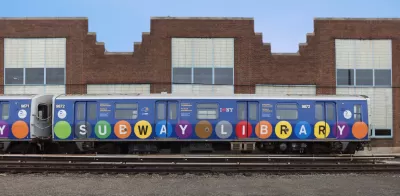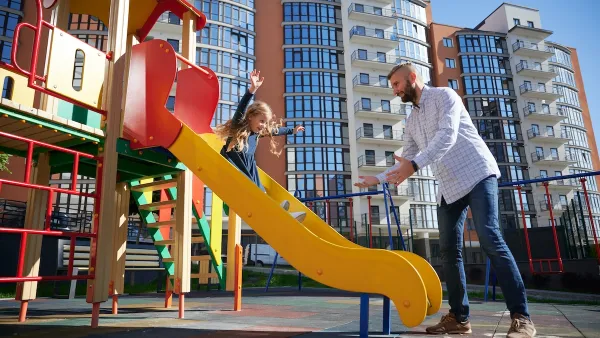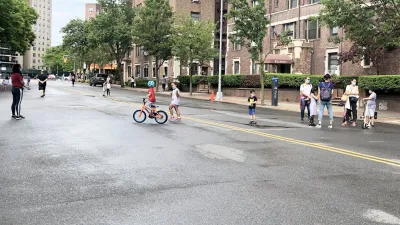In his new book Palaces for the People, sociologist Eric Klinenberg explores the places—from libraries and schools to cafes and churches—where cities' social lives take place. It's a compelling idea but one that Klinenberg discusses clumsily.

"Palaces for the People takes a meandering journey through what Klinenberg calls 'social infrastructure.' In contrast with 'social capital,' the term coined by Robert Putnam to describe the strength of social relationships, social infrastructure refers to the places where social relationships form. It’s a hardware-vs.-software situation, as it were."
"This premise, like almost everything else Klinenberg writes, is perfectly reasonable and engaging. Klinenberg writes with an admirable social mission: 'If states and societies do not recognize social infrastructure and how it works, they will fail to see a powerful way to promote civic engagement and social interaction, both within communities and across group lines.' And yet, he goes out of his way to muddle his argument and make the provision of social infrastructure seem somehow less urgent than it really is."
FULL STORY: The Social Importance of Public Spaces

Planetizen Federal Action Tracker
A weekly monitor of how Trump’s orders and actions are impacting planners and planning in America.

Map: Where Senate Republicans Want to Sell Your Public Lands
For public land advocates, the Senate Republicans’ proposal to sell millions of acres of public land in the West is “the biggest fight of their careers.”

Restaurant Patios Were a Pandemic Win — Why Were They so Hard to Keep?
Social distancing requirements and changes in travel patterns prompted cities to pilot new uses for street and sidewalk space. Then it got complicated.

Platform Pilsner: Vancouver Transit Agency Releases... a Beer?
TransLink will receive a portion of every sale of the four-pack.

Toronto Weighs Cheaper Transit, Parking Hikes for Major Events
Special event rates would take effect during large festivals, sports games and concerts to ‘discourage driving, manage congestion and free up space for transit.”

Berlin to Consider Car-Free Zone Larger Than Manhattan
The area bound by the 22-mile Ringbahn would still allow 12 uses of a private automobile per year per person, and several other exemptions.
Urban Design for Planners 1: Software Tools
This six-course series explores essential urban design concepts using open source software and equips planners with the tools they need to participate fully in the urban design process.
Planning for Universal Design
Learn the tools for implementing Universal Design in planning regulations.
Heyer Gruel & Associates PA
JM Goldson LLC
Custer County Colorado
City of Camden Redevelopment Agency
City of Astoria
Transportation Research & Education Center (TREC) at Portland State University
Camden Redevelopment Agency
City of Claremont
Municipality of Princeton (NJ)





























